
The Drawing of the Three is a fantasy novel by American writer Stephen King. It is the second book in The Dark Tower series, published by Grant in 1987. The series was inspired by Childe Roland to the Dark Tower Came by Robert Browning. The story is a continuation of The Gunslinger and follows Roland of Gilead and his quest towards the Dark Tower. The subtitle of this novel is RENEWAL.
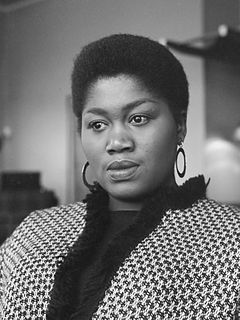
Odetta Holmes, known as Odetta, was an American singer, actress, guitarist, lyricist, and a civil and human rights activist, often referred to as "The Voice of the Civil Rights Movement". Her musical repertoire consisted largely of American folk music, blues, jazz, and spirituals. An important figure in the American folk music revival of the 1950s and 1960s, she influenced many of the key figures of the folk-revival of that time, including Bob Dylan, Joan Baez, Mavis Staples, and Janis Joplin. Time magazine included her recording of "Take This Hammer" on its list of the 100 Greatest Popular Songs, stating that "Rosa Parks was her No. 1 fan, and Martin Luther King Jr. called her the queen of American folk music."

Odetta & Larry was a short-lived blues-folk duo in the mid-1950s. It consisted of Odetta and Lawrence B. Mohr, the former of whom became the more well known in ensuing decades.

Odetta Sings Ballads and Blues is the debut solo album by American folk singer Odetta, first released in March or April 1957.

Odetta Sings Dylan is an album by American folk singer Odetta, issued by RCA Victor in 1965. It consists of covers of Bob Dylan songs.
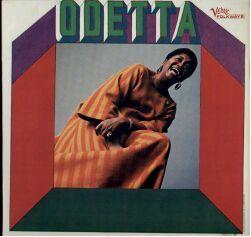
Odetta is the 1967 album by Odetta. It is viewed as one of her most "commercial", but it has not subsequently been re-released on CD as many of her other albums were.

To Ella is an album by American folk singer Odetta, released 1998 on Silverwolf Records. Recorded live at the Kerrville Folk Festival, it features traditional songs including "Amazing Grace" and a 27-minute "Ancestors Suite" containing several songs.

"Waterboy" is an American traditional folk song. It is built on the call "Water boy, where are you hidin'?" The call is one of several water boy calls in cotton plantation folk tradition.
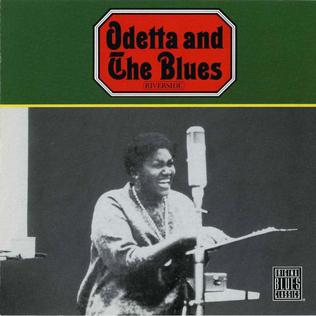
Odetta and the Blues is an album by folk singer Odetta, released in 1962.

Belafonte Returns to Carnegie Hall is a live double album by Harry Belafonte. It is the second of two Belafonte Carnegie Hall albums, and was recorded May 2, 1960. It peaked at #3 on the Billboard Pop albums charts.
"Glory, Glory" is an American spiritual song, which has been recorded by many artists in a variety of genres, including folk, country, blues, rock, and gospel. It is typically very melodically similar to another popular gospel song, "Will the Circle Be Unbroken".
Odetta's discography is large and diverse, covering over 50 years and many record labels.
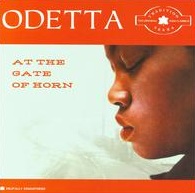
At the Gate of Horn is the second solo album by American folk singer Odetta, first released in October 1957. It was named for the Gate of Horn club in Chicago.
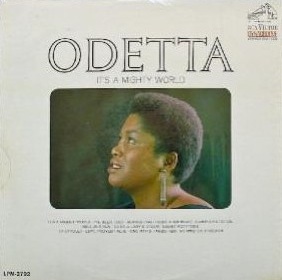
It's a Mighty World is an album by American folk singer Odetta, released by RCA Victor in 1964.
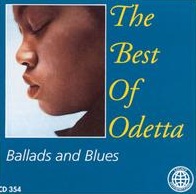
The Best of Odetta: Ballads and Blues is a compilation album by American folk singer Odetta, originally released in 1994.

Absolutely the Best is a compilation album by American folk singer Odetta, originally released in 2000.

Women in (E)motion is a live album by American folk singer Odetta, released in 2002. It was recorded live for the Women In (E)motion Festival in Bremen, Germany in 1990.

The Tradition Masters is an album by American folk singer Odetta, released in 2002.
"Oh, Freedom" is a post-Civil War African-American freedom song. It is often associated with the Civil Rights Movement, with Odetta, who recorded it as part of the "Spiritual Trilogy", on her Odetta Sings Ballads and Blues album, and with Joan Baez, who performed the song at the 1963 March on Washington. Baez has since performed the song live numerous times, both during her concerts and at other events. The song was first recorded in 1931 by the E. R. Nance Family as "Sweet Freedom".
Hit or Miss may refer to:














